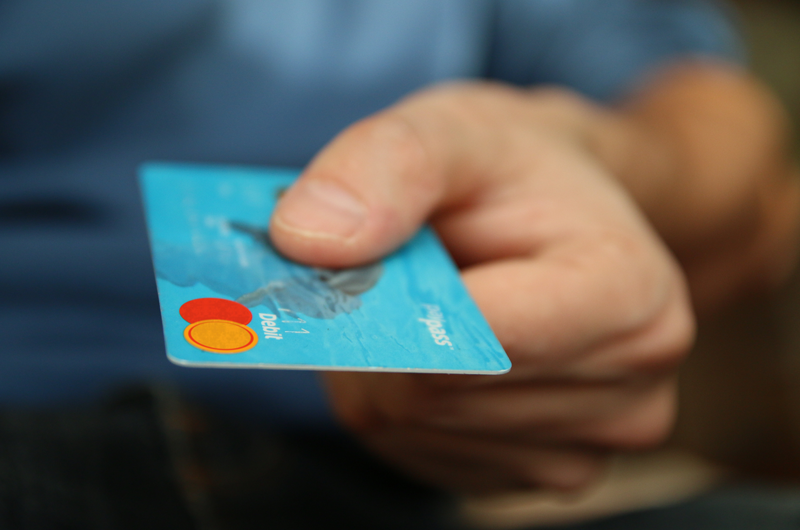Asteria Lending Inc. Unit 306 3/F 6762 National Life Insurance Bldg. San Lorenzo, Ayala Ave. Makati City
We’re Open: Mondays – Fridays
Office Hours:
9:00 am – 7:00 pm
Email:
[email protected]

For many people in industries that rely on face to face interaction, life has been put on hold indefinitely. This means that their regular income has all bit grinded to a halt and they are unsure of where their next pay cheque may be coming from. For the millions of families and individuals who are in this situation, borrowing from loan providers or credit card companies is often the most likely short-term solution to make ends meet. Though we know that credit and loans are not a replacement for a regular income, they can help you to meet the daily cost of living, even when you are not earning anything. In this article we discuss the pros and cons of using credit cards and personal loans to deal with the fallout from the Corona Virus.
Personal loans allow you to borrow a fixed amount of money at a set rate of interest, usually over a period of between 6 months to 5 years. Though some providers may offer longer or shorter terms. Rates can vary and the amount and percentage you can expect to be offered will depend on several factors that credit checking agencies will take in to account.
Loan providers will usually offer you a fixed rate of interest on most small to medium sized personal loans. This means you know exactly how much you will be expected pay each month. The only time you will be expected to pay more is if you miss an instalment or incur a penalty payment.
Once a personal loan has been approved, you can expect the money to be in your account within a matter of days. This means that for those who need to cover the cost of things like rent, bills, food costs, childcare or medical bills, loans are often a good way of creating a sense of financially security on a temporary basis.
Unlike credit cards, personal loans can’t be used to pay for goods and services on a daily basis. They are designed to give you a lump sum of money that can be used however you like. This is often a good option for times of crisis as you can keep track of exactly how much you have borrowed and the amount you owe will remain the same until you have totally cleared the debt.
At this point in time, there aren’t any loan providers who can offer you a rate of 0%. Though you may be able to secure quite competitive rates in the Philippines, generally speaking, personal loans will incur a higher rate of interest than credit cards. This is something to consider if you only need to borrow a small amount of money help you survive.
Unlike credit cards, you are not usually able to pay off personal loans early without incurring an early settlement fee. This isn’t a problem for those who are willing to make a fixed payment each month for the duration of the loan agreement, but it can feel very restrictive to those who require a little more financial flexibility.
Depending on several factors, the type of credit card available to you in the Philippines will vary quite considerably. For those with a relatively good credit rating and employment history, low or 0% rate cards may be a great option, though this is unlikely to be something people with large amounts of existing debt can consider.
If you know that you are going to be able to go back to work within a month or so, using a credit card to do your food shopping or pay your bills can be a reasonable option. Providing you understand that you will need to pay this money off over time, credit cards provide a lifeline for those without a regular income.
Borrowing a small amount of money from a credit card with a lower percentage rate is usually far cheaper than using a personal loan, providing you are able to repay the full amount within an agreed time limit. Many credit card providers will offer new and existing customers promotional rates that mean they can borrow without incurring a great deal of interest.
Using credit cards to transfer existing debt can be a useful way of making your overall payments a little bit smaller each month. During this time of global crisis, this may be a good option for those who are struggling to cover the cost of both their debts and the demands of daily living. Just remember that initial transfer rates will expire eventually.
Using credit cards to buy food or go shopping is convenient, but it can also be very easy to run up a substantial amount of debt in a short space of time. For those who struggle with keeping track of their finances, credit cards may not be the best option. Using apps and checking statements regularly is highly recommended.
Most credit card providers will cap borrowing for new users, so for those who have found themselves in a difficult situation because of the covid-19 outbreak, the amount available may not be enough to cover everything they need. Credit cards aren’t usually designed to provide large sums of money and should be used for smaller purchases if possible.
Unlike personal loans, credit cards can be used as and when you feel like it, which means that you could be end up wasting money on things you don’t really need. This type of borrowing should only be used by those who can guarantee they won’t spend without thinking about it, otherwise it can lead to more debt and an unmanageable situation.